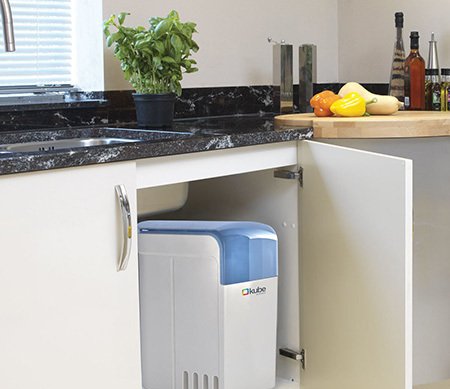Call This Wednesday to Get $50 OFF
Call us today
214-943-2424

With increasing water quality problems, many homeowners are giving water softeners a chance. If you are reading this article, you might be interested in getting one or want to learn how the water softener at your house works. You are in the right address as you will learn everything, including the health effects and mechanisms. Throughout this article, we will go through what a water softener is, its advantages and disadvantages, what is in it, and how Texas Rooter can help. So, let’s start.
A water softener is a filtering system that removes most calcium and magnesium from your water. It uses two primary elements to get rid of them. There are different types of water softeners, and because it is relatively new, people don’t know much about its disadvantages. Let’s learn whether water softeners are safe, effective, and good for our health and environment.
There are many advantages to installing a water softener. Firstly, reducing the magnesium and calcium in the water will allow the life of appliances to increase. The amount of mineral buildup will decrease significantly, and you will notice a significant decrease in pip fixtures. Another advantage is that you will notice much fewer mineral spots on glassware and reduce detergent curds in washing machines and sinks.
Of course, there are also disadvantages to installing a water softener. For example, a significant reduction in the minerals that would normally be in water can result in negative health and environmental effects. They are very expensive to install and maintain, and if you were to look at their alternatives, you would also conclude that they are more expensive. If you want to learn whether water softeners are for you, call a plumbing service today.
There are different types of water softeners. The most common type of water softener is ion exchange. It removes calcium and magnesium and replaces them with sodium ions. This makes the taste of the water better and removes the damaging effects of these elements. The second type is a salt-free softener. It uses a mechanical filter to remove calcium but not magnesium. The last type of softener is called reverse osmosis. It filters water through a membrane that removes the damaging elements. However, using this mechanism for drinking purposes can be harmful as our body needs certain minerals and nutrients that come from water. With a softener, most of these minerals are filtered. Call Texas Rooter to learn more about getting the right water softener installation.
If you want professional guidance on getting your water softener, you need to work with Texas Rooter. At Texas Rooter, we are dedicated to providing quality services to our customers. With our dedicated plumbers, motivation, and affordable price plans, getting a water softener has never been easier. Call us today to learn more about us and our services or get estimates for your plumbing problem.
Trying to rinse a greasy pot with a weak stream of water can test anyone’s…
Read MoreReplacing a toilet sounds simple at first. You shut off the water, remove the old…
Read MoreWhen most people hear the words pipe repair, they picture broken…
Read MoreThe sewer line is a core part of any habitable property, but they're out of…
Read MoreGarbage disposals are designed to make kitchen cleanup easier, not to handle everything that comes…
Read More